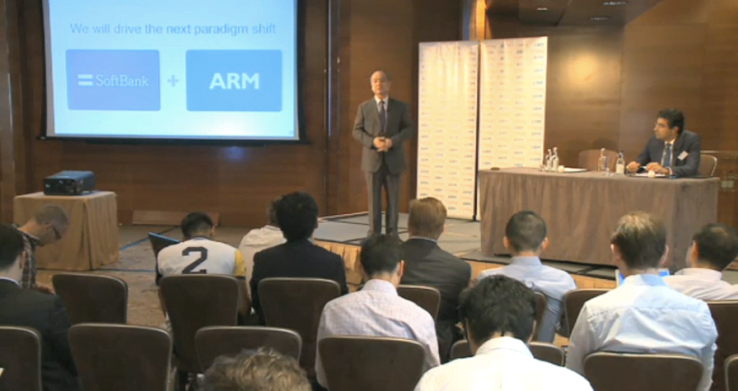
We’ve said it a thousand times, or at least a half dozen anyway, but shopping for computers remains a daunting task for many. There’s a lot you need to know before buying a computer, and even more mistakes you can make shopping for a computer. Matters only get more complicated when you set your eyes on a buying a gaming computer. In order to play the latest video games on a computer, your rig is going to need to have at least a graphics card on top of the other hardware a typical PC needs.
Of course if you have a fat wallet, you can check the system requirements and buy yourself a top-notch rig that meets those requirements. But assuming you don’t have a fat wad of cash that you can freely blow on the most expensive machines on the market, let’s consider good value PCs that balance price and performance, both pre-built and projects you want to put together yourself, and clear up some of the easy mistakes you can make that are specific to gaming computers.
1. Buying a gaming PC because it looks cool
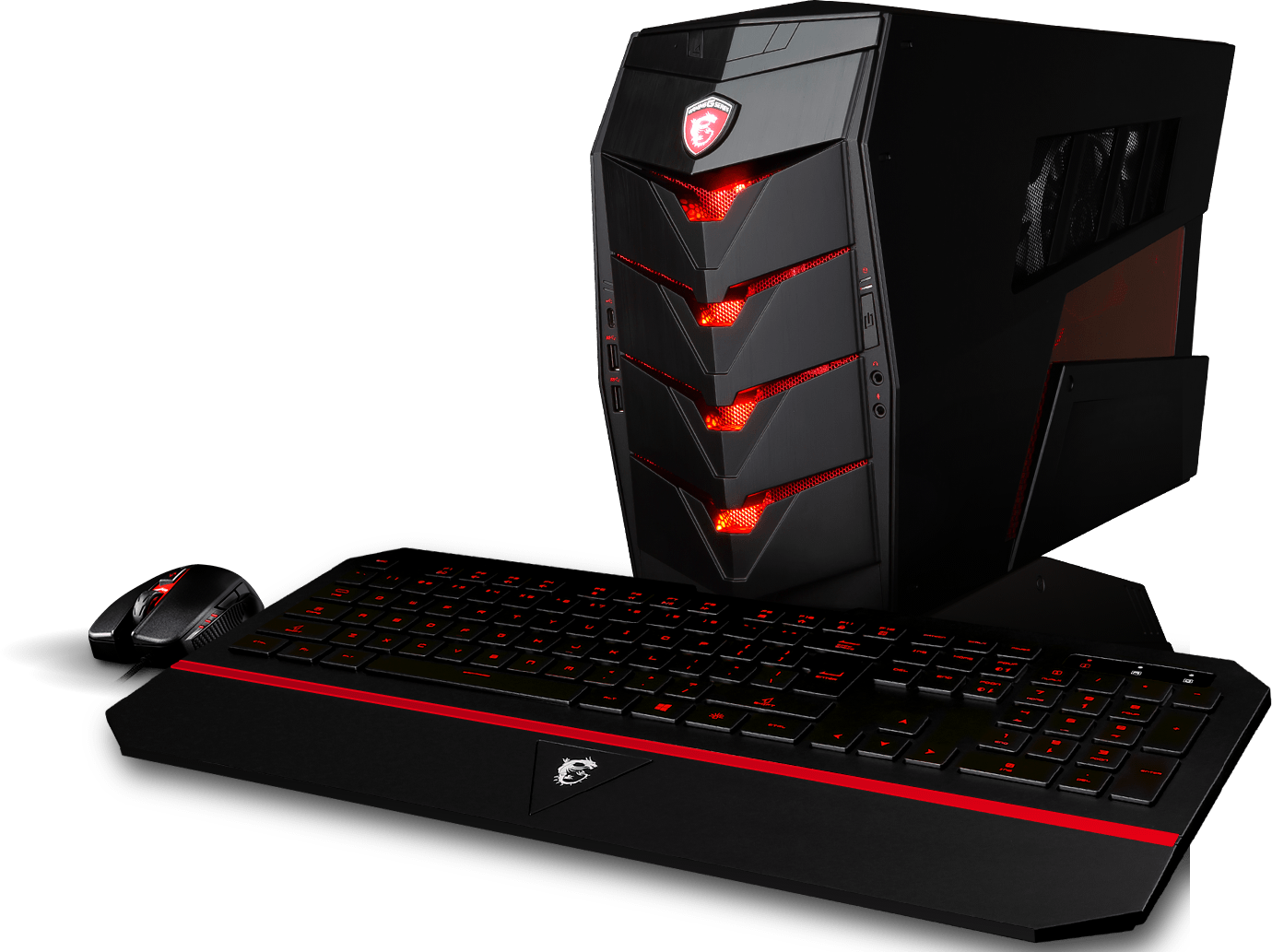
MSI Aegis Barebones PC | Source: MSI.com
This mistake is quite similar to the idea that bigger is better. A gaming rig with a cool looking case and snazzy lighting can easily fail to have the high-end components inside necessary for the best gaming experience. In fact, a simple black box could easily outperform a fireworks display of a gaming PC as long as it has the right components.
This doesn’t mean you shouldn’t buy a stylish computer, as having something flashy and original is one of the fun parts of having a gaming PC. Just know that all the visuals of the machine are going to be a superfluous cost and should be last in line for your consideration. If you want a solid machine, think about putting your money into the machines guts and not its face
Concrete example:
- The MSI Aegis picture above might be a reasonable buy for some who need exactly the barebones setup it offers, but for many, the aesthetic is going to cost them money that could have been spent elsewhere.
2. Forgetting how big game files are
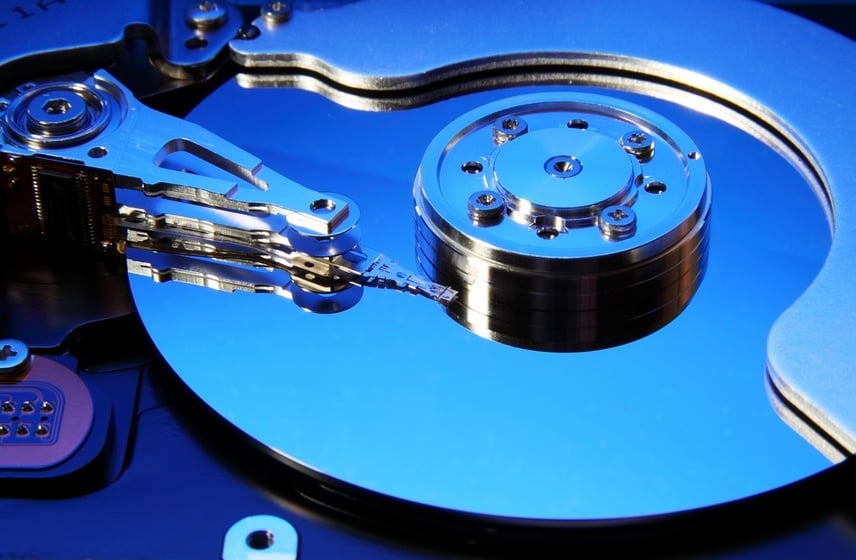
Source: iStock
When you’re picking out a computer, or deciding on a storage drive to put in your build, you should remember that modern video games are big. Some AAA games can easily exceed 30GB. Future games are going to use even higher quality textures and models that will make the game files even larger. Plus, games these days get all sorts of expansions that require even more space on top of the original file. If you only play one game at a time, and remove them from your machine afterward, then you should have no problem working with a smaller drive, but gamers who like to have all their games downloaded and ready to play on a moments notice should plan on having large storage and a computer with extra SATA cables and drive bays for additional hard drives or solid state drives. For fastest access to your games, make sure to get either an SSD or at least a 7,200 RPM hard drive that connect to your motherboard via SATA III 6.0 Gbps (If you don’t know what that is, just know that you should be able to find these details in the tech specs of the component).
Concrete example:
- Getting a 256GB SSD for fast access to all your games, when it really will only fit a handful of them.
3. Not planning for the future
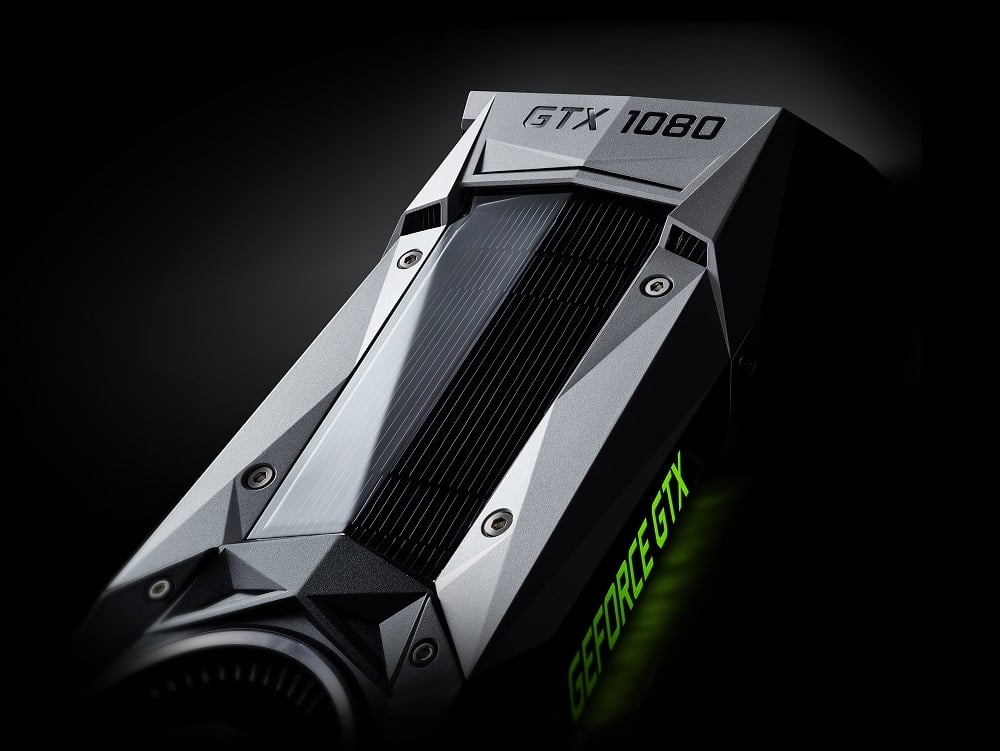
NVIDIA GeForce GTX 1080 | Source: NVIDIA.com
PC games advance quickly. This is why their file sizes keep getting larger. As they advance, they demand more and more of the hardware that runs them. The upgrade cycle of gaming PCs can be a lot quicker than that of consoles like Xbox and PlayStation. Although you can usually wait a while to upgrade your computer and just run newer games at lower settings, if you wait long enough, you’ll eventually be unable to run games.
The last thing you want to do is buy a computer, and then discover that when you need to upgrade it, you actually have to replace the whole computer. Although there’s no way to absolutely prevent your computer from becoming obsolete someday, you can plan for ways to delay it. Ensuring you have extra ports and bays to install additional storage will help, and should be commonly found. A key aspect here is choosing a motherboard that’s not terribly dated. If you buy a motherboard with a CPU socket that isn’t compatible with the latest Intel or AMD processors, then you’re basically locking yourself into using a dated CPU and also needing to do a lot more parts swapping when you eventually do upgrade (which equates to spending a lot more money as well).
Concrete example:
- Buying an LGA 1150 motherboard now, when it has already been succeeded by LGA 1151.
- Buying a motherboard that only supports SATA II drives, when SATA III is current and faster.
4. Skimping on the power supply

A reliable power supply is crucial to a consistent and safe gaming computer | Source: iStock
There are a few reasons skimping on the power supply can be problematic. The first reason is that you don’t want to have a low quality power supply. The component delivers the electricity to all the other components in your rig. If you buy one that doesn’t do a good job or is of questionable quality, it has the potentially to result in sub-optimal performance, damage or destroy your components, or even start a fire. A low quality power supply will also probably be inefficient, meaning it could increase the cost of your electricity bill at the end of each month.
You’re also going to need to make sure that you power supply is of a high enough wattage to actually support all of the components in your computer. A good CPU and GPU are going to require more power than the average non-gaming computer. You can use a site like PCPartPicker.com to estimate the wattage requirements of your build and ensure that you get a power supply that exceeds that total. If you know you’re going to add more components later, you can plan for this and buy a power supply that will be able to accommodate those future upgrades so you don’t have to buy a new power supply as well, otherwise you should just aim 50-100 watts above what your build demands.
Concrete example:
- Buying a 400 watt power supply when you plan to run two GTX 1080s in SLI, three hard drives, a quad-core i7 processor, etc.
5. Getting features you don’t need
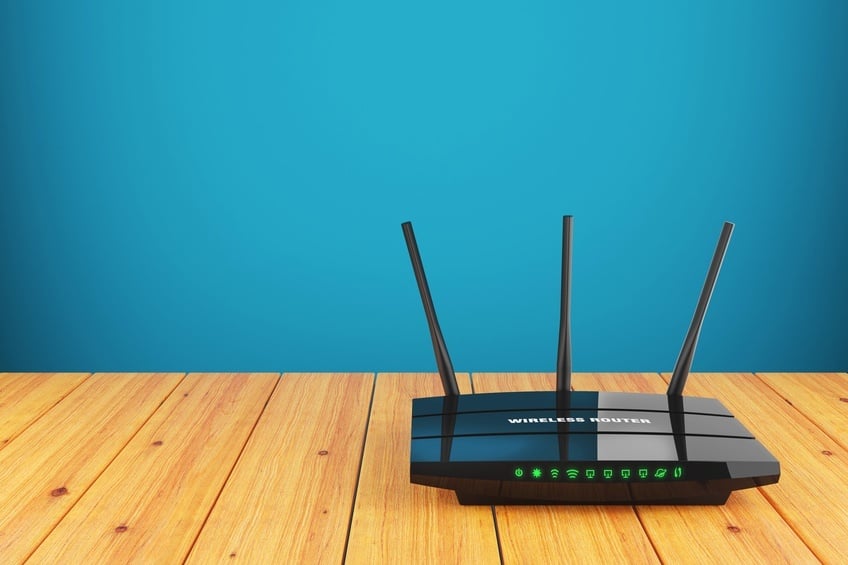
Source: iStock
For simplicity’s sake, let’s assume you’re buying a gaming computer mostly for gaming and little else. This means to get the best experience for your money, you’re going to want to ensure you don’t fork out money for unnecessary features and components when that money could be put into higher quality components essential to gaming. Let’s look at a couple features you can forget about. CD/DVD/Blu-ray drives? Forget about them, as you ought to plan to download copies of your games. Wi-Fi adapter? Nope, you should plan on using an ethernet connection to your router for a faster, more stable connection downloading games and playing them online. All those flashy lights I mentioned earlier? Don’t think those were slapped into the machine for free because the manufacturer just had some extras lying around. Audio ports for 7.1 channel surround sound? If you don’t plan to use them all, you surely don’t need them (and if you really want it in the future, plenty of USB headphones are available to take on the task.
Concrete example:
- All those mentioned above. You should avoid those expenses and focus on getting the best CPU, GPU, storage, and RAM that you can for your money.
6. Getting an APU and a GPU
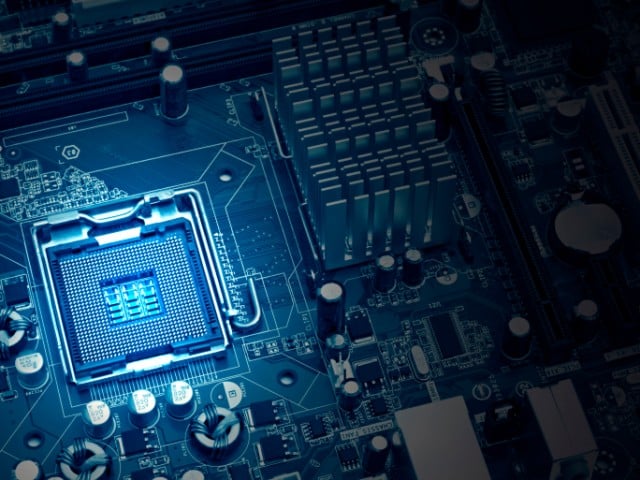
Source: Thinkstock
What’s an APU? It’s an Accelerated Processing Unit, and features both a CPU and GPU on a single chip. I won’t say it’s a good thing or a bad thing for a gaming computer. It’s certainly convenient in that it makes things simple, and its size can make building a small gaming rig easier, but often the GPU on these chips won’t offer as impressive a gaming experience as another current generation dedicated graphics card. You can decide what you want for yourself, just don’t get both an APU and a dedicated GPU. Get a normal CPU and a GPU, or get only an APU. When you buy an APU, you’re paying extra for that GPU to be on the chip, but if you use it with a dedicated graphics card, the GPU half of the APU is simply going to sit idle and go to waste.
Concrete example:
- Getting an AMD A10 processor and an NVIDIA GTX 1080 video card.
7. Thinking you need a lot of RAM
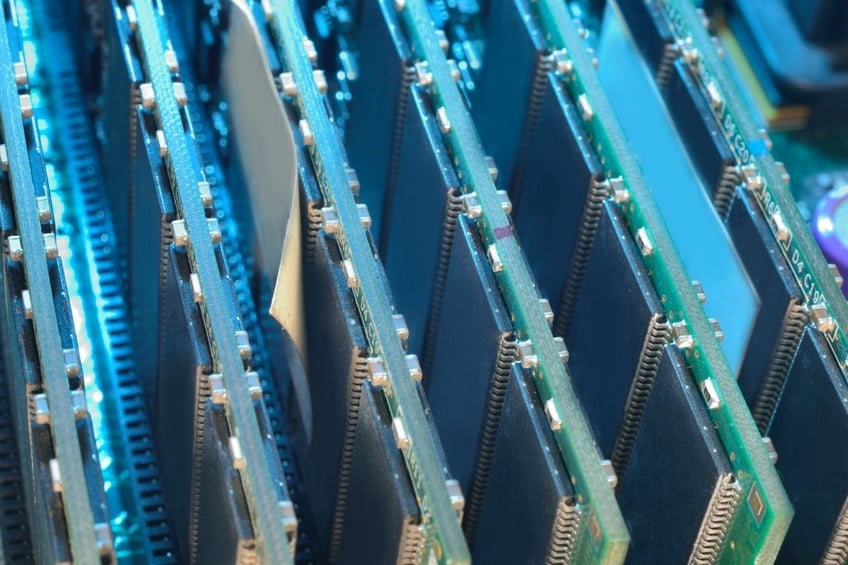
Source: iStock
Yes, video games will require a certain amount of RAM installed in your computer. But you’re probably not going to need a lot. Make sure that you have enough RAM for whatever game you want to play, but don’t go thinking you need to put in as much RAM as your computer can handle. Hardware Secrets has shown that extra RAM doesn’t make games run any better. Instead, think about getting a graphics card with more VRAM, which will allow for higher resolution textures and better visuals in your games.
Concrete example:
- Star Wars Battlefront recommends 16GB of RAM. Don’t Buy 32GB of RAM thinking it will make the game run better.
8. Thinking Windows comes with the machine
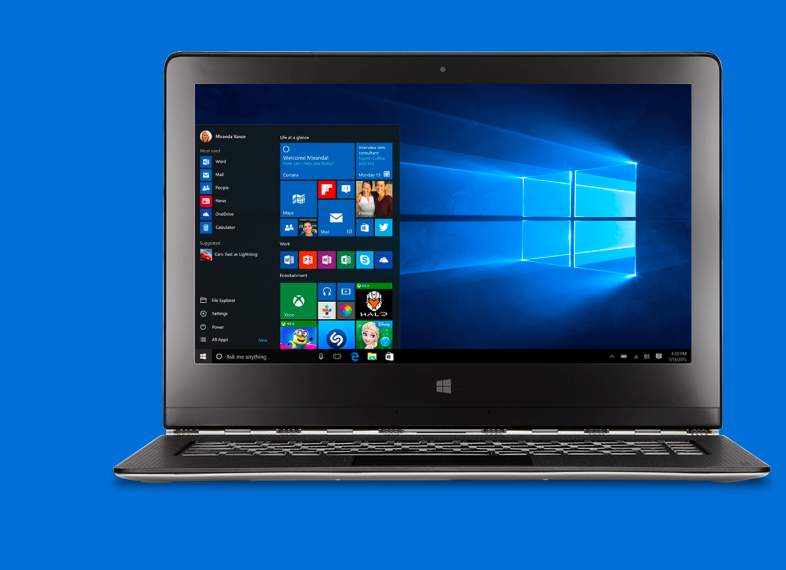
Source: Microsoft.com
If you’re building your own gaming computer, get ready to also pay to purchase a license for Windows. You won’t put together all the components you buy and magically have an operating system show up on the machine. This is particularly important when you’re planning your build, as it’s a fairly large cost (likely upwards of $70). If you’re buying a gaming computer that comes pre-built you’ll also want to make sure it says it comes with a version of Windows pre-installed, as some companies will sell computers without an operating system or with just a trial version of it. Be careful.
Concrete example:
- Any computer you build from scratch is going to require that you purchase an operating system for it.
9. Thinking you’ll go with Linux and still be gaming like everyone else
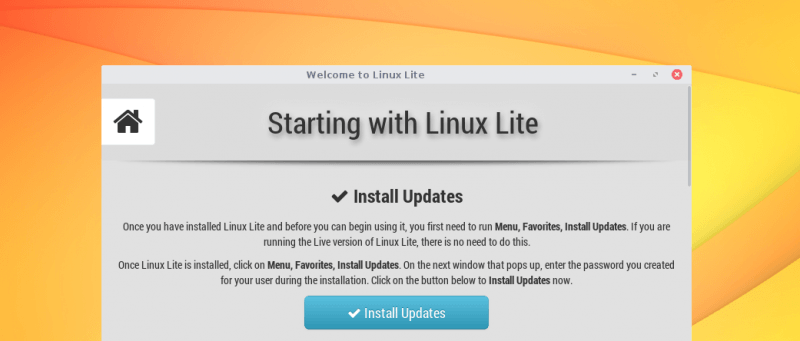
Source: Linux.com
So maybe you think you’ll just skip Windows altogether and go with Linux; it’s free after all. While you can certainly find video games that will run on Linux, you’re going to find a ton of major games that will not run on Linux. If you’re buying a gaming computer, you’re buying it to play games. Not to browse the internet looking at all the games that your computer doesn’t play. Look here, and if you don’t see all the games you desperately want to play, don’t go with Linux.
Concrete example:
- Just look at this struggle bus of users wanting Overwatch to run on Linux. Some games will make the jump, but many won’t.
10. Getting a Steam Machine
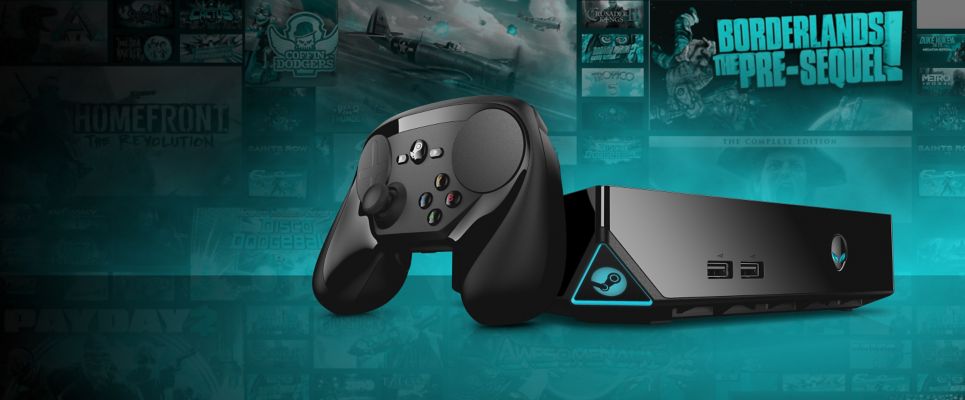
Alienware Steam Machine | Source: Dell.com
OK, you can get a Steam Machine if you really want. You buy them and they’re ready to game (kind of). Simplicity can be good. It’s what has made video game consoles so successful. Steam Machines are an attempt to replicate this simplicity by offering a machine that has a similar form factor to consoles and an operating system designed for gaming and multimedia consumption like consoles. The problem is, there’s a lot of variation, and some will be vastly more capable of quality gaming experiences than others. The machines generally are less upgradeable as well, taking away one of the best features of gaming PCs (small gaming computers generally will be harder to upgrade because of space constrictions alone). Then there’s the problem of the operating system, Steam OS, which is a build of Linux. Remember what I said about Linux moments ago? Yep, still applies. Steam Machine are basically Linux consoles, as opposed to actual gaming computers.
Concrete examples:
- Some parts of this Steam Machine could be upgrade, but the graphics card couldn’t be.
11. Forgetting about a monitor (and compatibility)
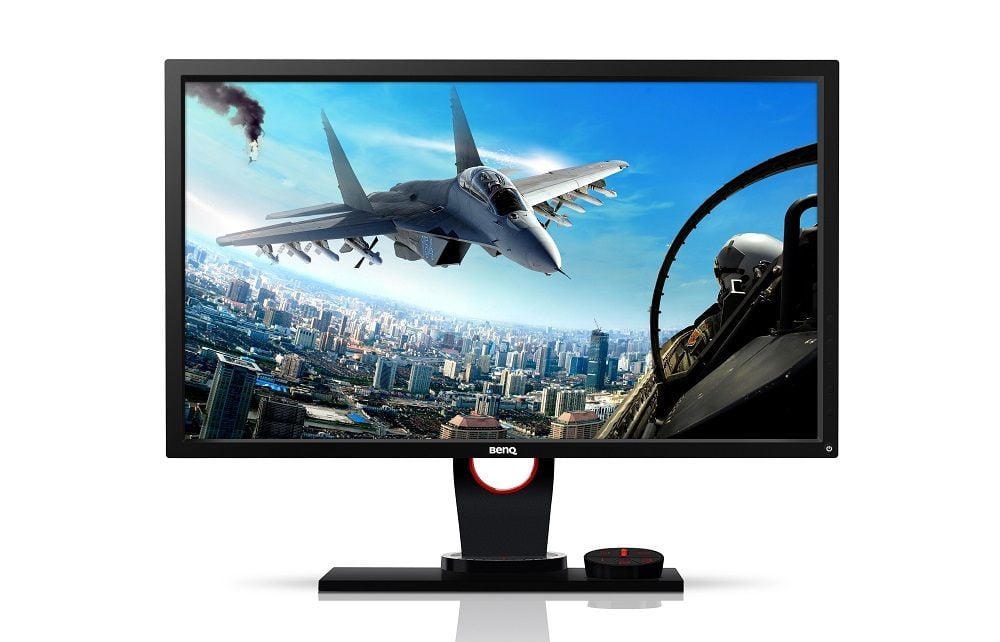
144hz Gaming Monitor | Source: Benq.us
A monitor is a key component in your gaming setup. Though you might be tempted to get the best computer you can, keep in mind that you should set aside some of your budget to get a well-reviewed gaming monitor (emphasis on gaming). For an optimal gaming experience, you’ll want to get a monitor with low input lag and a fast response time. Response time under 10ms should be good and easy to find (this will making motion in games appear clearer). You can learn more about input lag and find monitors here, but aim to have somewhere below 40ms of input lag for a responsive gaming experience. You’ll also want to make sure you buy a monitor that has inputs that match the outputs of your GPU, otherwise you won’t be able to connect them (e.g., if your graphics card doesn’t support HDMI out, don’t buy a monitor that only has an HDMI port). If you buy a monitor with a high refresh rate (120hz or 144hz) or a extra high resolution display (1440p or 4K) you’ll also want to make sure your graphics card has the right outputs to support these refresh rates and resolutions (you’ll need the right cable, too).
Concrete example:
- This MSI GTX 960 graphics card cannot deliver 4K-resolution graphics at a rate higher than 60hz, so it would be inadvisable to buy a 120hz 4K monitor for a build with this GPU.
12. Thinking you can game with your friends on console

Source: iStock
You can totally play games with your friends on Xbox and PlayStation when you go to their place and use their Xbox and PlayStation, but that’s it (generally). The majority of games won’t let PC gamers and console gamers play with one another, just as Xbox gamers don’t get to play with PlayStation gamers. Some rare games are enabling cross-platform play, but for now, it’s not a common feature. If you love playing games online with friends but you know most of your friends are console gamers, maybe you’ll want to rethink getting a gaming PC. If you don’t mind playing online with strangers or playing alone and just want to get the best graphical experience possible, then a gaming PC is the way to go.
Concrete example:
- My friend had Rainbow Six Siege on Xbox One, but in order to play with me, he needed to buy a second copy on PC.
13. Thinking this makes you better than console gamers
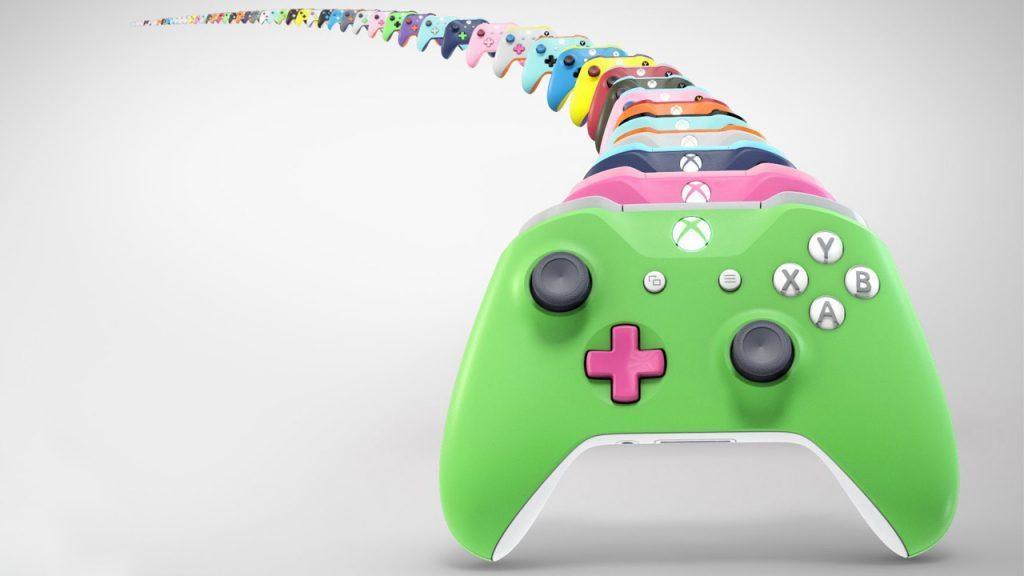
Source: Microsoft
The merits of a gaming PC are not up for debate. They can always be outfitted with the latest and most powerful hardware to allow for the best possible visual experience in video games — consoles will never compete on this front. For many game types, the mouse and keyboard combo is widely consider superior to a controller, but PCs still have the option of using either of the two. But does any of this make PC gamers better than console gamers? No. For one, consoles are simple — there’s no fretting about whether a game will or won’t work with the hardware. The second credit is that their audience is huge, so their online gaming community is much larger (i.e., there will be more people to play with). And then they’re generally cheaper as well. It may be easy to make a gaming PC that outperforms a console while also being cheaper, but it’s also easy to make a more expensive gaming PC that can’t beat a console.
[Source:- Cheat Sheet]

